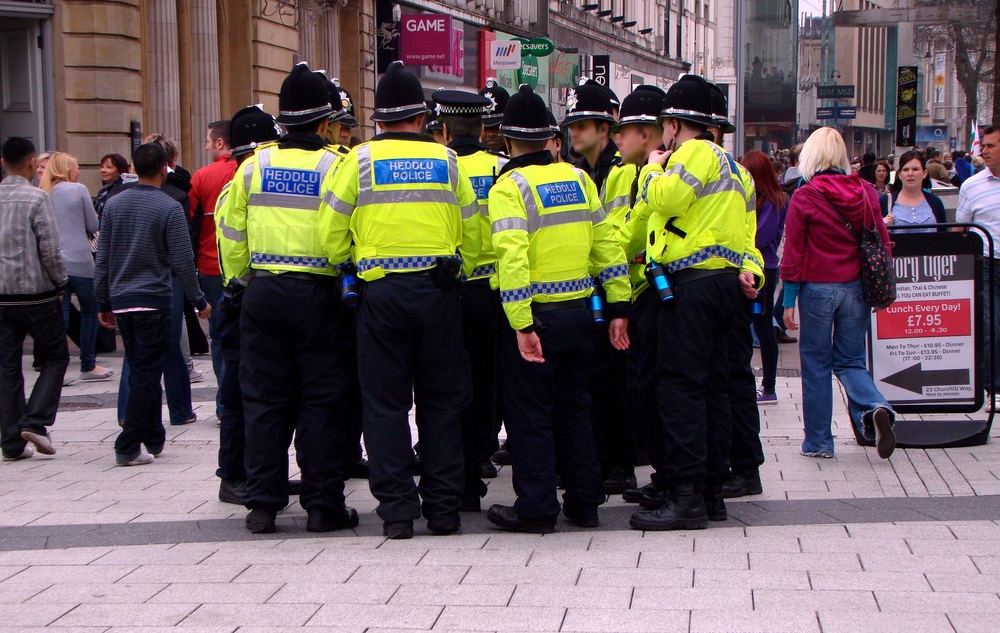Campaigners criticise guidance sanctioning rollout of facial recognition cameras used by South Wales Police

Campaigners have criticised new UK Government guidance sanctioning the rollout of facial recognition technology which proved controversial when used by South Wales Police.
The new guidance says that the use of facial recognition technology should be justified and proportionate and any unused data should be quickly deleted. It should also take into account any potential adverse impact on protected groups.
But 31 organisations including Liberty, Privacy International and Amnesty say the new Home Office guidance allowing police, local councils and enforcement agencies to deploy face recognition cameras across Wales and England ignores court rulings against “invasive” filming.
A court of appeal earlier ruled that the use of facial recognition cameras by South Wales Police as a pilot scheme, before rolling them out nationwide, breached privacy rights and broke equalities law.
It followed a legal challenge brought by civil rights group Liberty and Ed Bridges, 37, from Cardiff, in August of last year.
“In a democratic society, it is imperative that intrusive technologies are subject to effective scrutiny,” the letter signed by the 31 organisations and published in the Telegraph said.
“Police and the Home Office have, so far, completely bypassed Parliament on the matter of live facial recognition technology (LFRT).
“We are not aware of any intention to subject LFRT plans to parliamentary consideration, despite the intrusiveness of this technology, its highly controversial use over a number of years, and the dangers associated with its use.”
Facial recognition technology maps faces in crowds and alerts the police if they match images of people on a watchlist of individuals of interest to the police.
Support our Nation today
For the price of a cup of coffee a month you can help us create an independent, not-for-profit, national news service for the people of Wales, by the people of Wales.






The concept of this sort of tech being used in abstract is potentially an amazingly positive for tackling serious crime. In reality, I have no idea how we can safeguard against misuse and abuse. Nightmarish
Further, to bring it into a more Cymru-focused view, we should not condone this sort of bolstering or expanding of public bodies until every aspect of governance and services are fully devolved to our government in Cardiff Bay.
There are pro and anti arguments but the one that should kill this is the racial bias built in. Stop and search means that existing racism among the police ensures a disproportionate level of black faces in the system, which is bad enough. Then we find that white adult males can be identified to well over 90% accuracy while black females have a 40% error rate. Until they get it to work completely error free, a digital impossibility, it should not be used in the criminal justice system. Does your driving licence or passport photo look remotely like you? I… Read more »
Not too sure on your first reason; seen a lot of conflicting data and even worse data analysis regarding policing. This’ll open up a side debate that allows for this tech to slip through to common usage amidst the noise- as for the efficacy of the tech, good! I hope it remains poor enough so as to render it as open to challenge as lie detectors are in the States. The ethical issues that’ll sink this implementation should be broader, centering the citizen, whatever colour their skin. Do you want your image captured and stored by sub100% accurate tech, analysed… Read more »
A good argument to continue wearing masks?
I hope Mark Drakeford doesn’t read this comment ….any excuse could be needed as they make little difference (his quote from July 2020)
and dark glasses.
https://rubberjohnniesmasks.com/products/boris-johnson-mask?variant=32588686524482&sfdr_ptcid=41218_100_671828374&sfdr_hash=663a7882e8fb913f515dbaa0fdca8283&gclid=EAIaIQobChMI6aSdiIjH8gIVwoBQBh33oQAdEAQYASABEgIBIfD_BwE